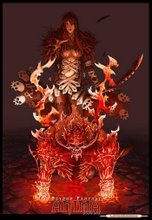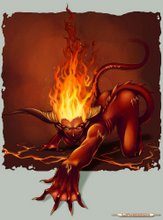[sujeto + was/were + verbo + ing]
constructs: subjet + was/were + verb + ing
notices: was/were is the past of the verb to be
We use to speak about a concrete action that began and finished in the past giving the idea of a continued duration.
ej:
- I was driving along East street when I saw a fire
- I was running when I met her.
Simple Past
[VERB+ed] or irregular verbs
Examples:
· You called Debbie.
· Did you call Debbie?
· You did not call Debbie.
Use the Simple Past to express the idea that an action started and finished at a specific time in the past. Sometimes, the speaker may not actually mention the specific time, but they do have one specific time in mind.
Examples:
· You called Debbie.
· Did you call Debbie?
· You did not call Debbie.
Use the Simple Past to express the idea that an action started and finished at a specific time in the past. Sometimes, the speaker may not actually mention the specific time, but they do have one specific time in mind.
Present Perfect
[has/have + past participle]
Examples:
· You have seen that movie many times.
· Have you seen that movie many times?
· You have not seen that movie many times.
We use the Present Perfect to say that an action happened at an unspecified time before now. The exact time is not important. You CANNOT use the Present Perfect with specific time expressions such as: yesterday, one year ago, last week, when I was a child, when I lived in Japan, at that moment, that day, one day, etc. We CAN use the Present Perfect with unspecific expressions such as: ever, never, once, many times, several times, before, so far, already, yet, etc.
Examples:
· You have seen that movie many times.
· Have you seen that movie many times?
· You have not seen that movie many times.
We use the Present Perfect to say that an action happened at an unspecified time before now. The exact time is not important. You CANNOT use the Present Perfect with specific time expressions such as: yesterday, one year ago, last week, when I was a child, when I lived in Japan, at that moment, that day, one day, etc. We CAN use the Present Perfect with unspecific expressions such as: ever, never, once, many times, several times, before, so far, already, yet, etc.
AFRICA

The economy of Africa consists of the trade, industry, and resources of the peoples of Africa. As of July 2005, approximately 887 million people were living in 54 different states. Africa is the world's poorest inhabited continent. The continent has made significant gains over the last few years owing to fairer trade,[citation needed] . Of the 175 countries reviewed in the United Nations' Human Development Report 2003, 25 African nations ranked lowest amongst the nations of the world.
The History of Africa begins from the emergence of modern human beings to its current state as a politically developing continent.
Africa's ancient historic period involves the rise of Egyptian civilization, the further development of societies outside the Nile River Valley and the interaction between them and civilizations outside of Africa. In the late 7th century North and East Africa were heavily influenced by the spread of Islam, leading to the appearance of new cultures such as those of the Swahili people. This also lead to an increase in the Arab slave trade that would culminate in the 19th century. Pre-colonial African history focuses on the time between the early 16th century with the forced transport of African peoples and cultures to the New World in the Atlantic slave trade up to the beginning of the European scramble for Africa. Africa's colonial period lasted from the late 1800s until the advent of African independence movements in 1951 when Libya became the first former colony to become independent. Modern African history has been rife with revolutions and wars as well as the growth of modern African economies and democratization across the continent.
INDIA

The economy of India, when measured in USD exchange-rate terms, is the twelfth largest in the world, with a GDP of US $1.25 trillion (2008). It is the third largest in terms of purchasing power parity. India is the second fastest growing major economy in the world, with a GDP growth rate of 9.4% for the fiscal year 2006–2007. However, India's huge population has a per capita income of $4,542 at PPP and $1,089 in nominal terms (revised 2007 estimate). The World Bank classifies India as a low-income economy.
The history of India begins with the Indus Valley Civilization, which flourished in the north-western part of the Indian subcontinent from 3300 to 1700 BCE. This Bronze Age civilization was followed by the Iron Age Vedic period, which witnessed the rise of major kingdoms known as the Mahajanapadas. In two of these, in the 6th century BCE, Mahavira and Gautama Buddha were born.
Suscribirse a:
Comentarios (Atom)







